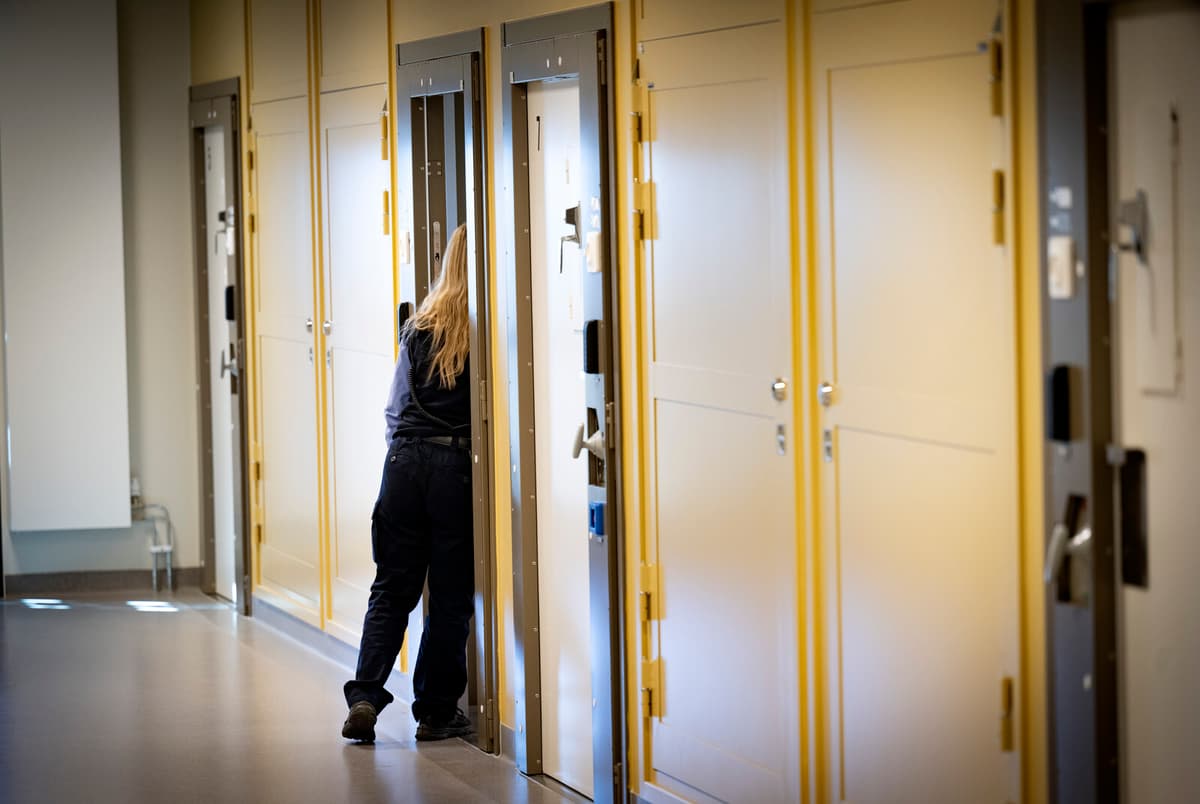On July 1, 2026, in just over a year and a half, the first young offenders between 15 and 17 years old will be able to be received and serve prison sentences with the Prison and Probation Service. According to the assignment given to the agency by the government in the fall of 2023, prisons will replace the units at special youth homes that the National Board of Institutions (Sis) is responsible for today.
For the already overcrowded Prison and Probation Service, it is urgent to both find the physical spaces needed for children and young people and adapt the operations to the fact that they are still children and, as such, have rights enshrined in Swedish law.
Serious Crimes
Håkan Zandén, who is responsible for the preparations within the Prison and Probation Service, says that the agency is used to working with children's issues - but from a different perspective.
I also think we are good at doing child rights assessments and we are skilled at thinking about children as our clients. But now we also need to become good at handling children who are perpetrators, children who have committed very serious crimes and at the same time are rights-holders as children.
By the planned start of the youth units in the summer of 2026, there will not be time to build new institutions. Instead, the places for the young people will be located on special units at existing institutions for adult offenders. The Prison and Probation Service initially plans to have youth units at at least two institutions for boys in the highest security classes and one institution for girls.
Small Units
In the short term, we are trying to find existing institutions around Sweden in security classes 1 and 2, since we are talking about very serious crime. We are planning for small units with high staff density - otherwise, it will be chaotic, simply, says Håkan Zandén.
The daily life of the young people in prison will differ from that of the adults. Above all, it concerns schooling, where some of the inmates will be so young that they are subject to compulsory education.
We will offer treatments for both criminality and substance abuse. The idea is to really focus on breaking criminal behavior here so that we don't get these young people back as adults, says Zandén.
The UN Convention on the Rights of the Child was adopted in 1989. On January 1, 2020, the Convention on the Rights of the Child was incorporated into Swedish law.
The Convention on the Rights of the Child contains 54 articles, of which four are fundamental principles that should always be considered in matters concerning children:
1. All children have the same rights and equal value.
2. The best interests of the child should be considered in all decisions concerning children.
3. All children have the right to life and development.
4. All children have the right to express their opinions and have them respected.
Other rights in the Convention on the Rights of the Child include:
+ Anyone under the age of 18 is considered a child
+ Children have the right to a private life
+ Children have the right to access information through, for example, the internet, radio, and TV.
+ Children have the right to education. Compulsory education should be free and accessible to all.
+ Children have the right to leisure, rest, and recreation.
+ Children who are accused of crimes or have been convicted of an offense have the right to be treated fairly and respectfully, receive legal support, and be reintegrated into society.
Source: Unicef






